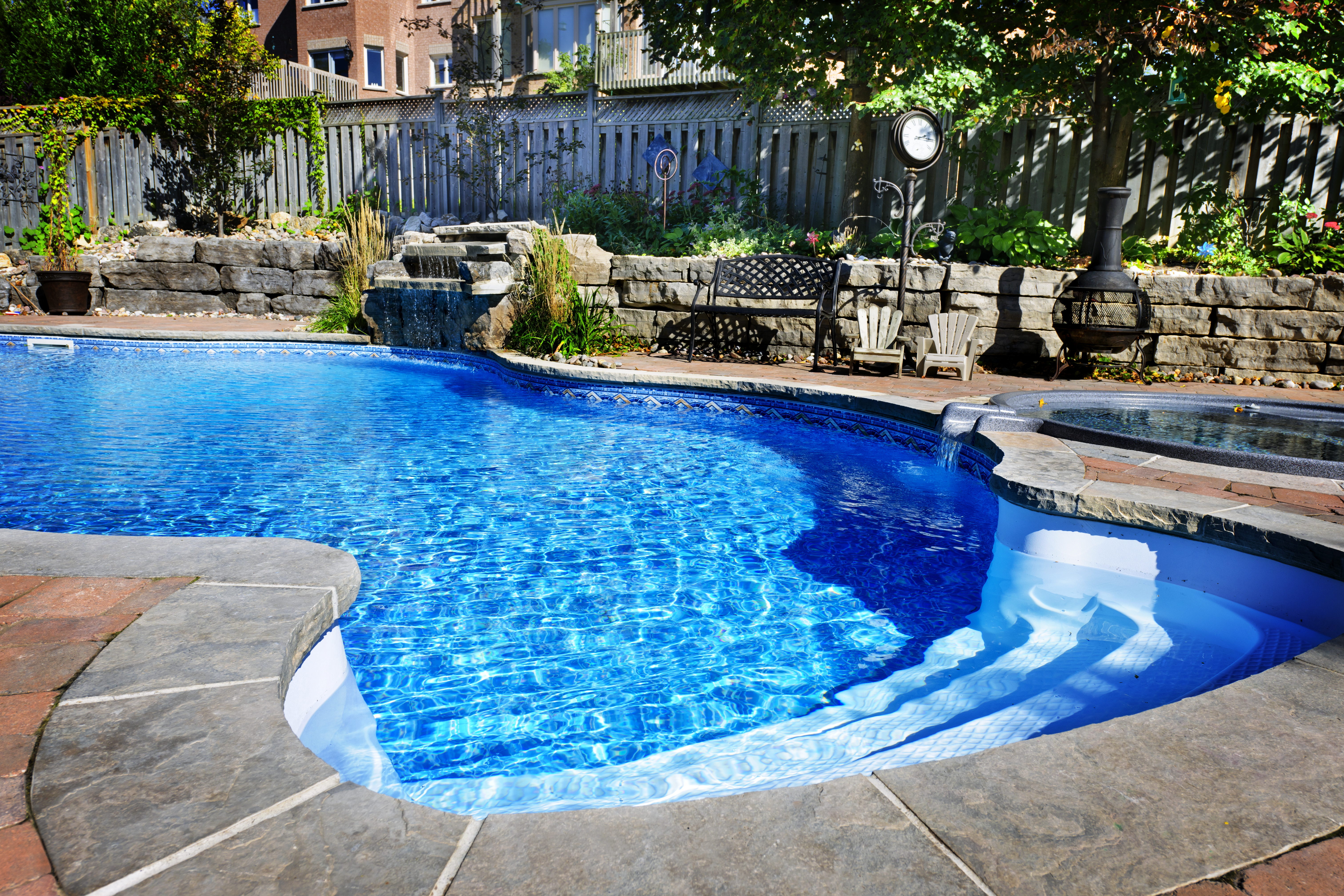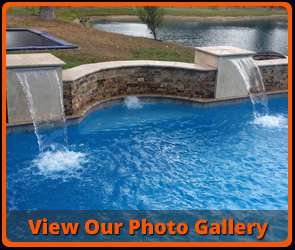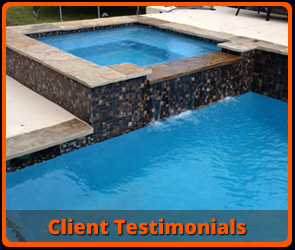There are over 5 million privately-owned inground pools across the U.S. and 50,000 more are constructed each year. Pools are the perfect gathering spot for holding family barbeques, entertaining invited guests, or simply escaping the summer heat.
Maybe your next-door neighbor just had a new inground pool installed and now you can’t help but fantasize about owning one of your own.
There are so many different materials, manufacturers, and times to install. Finding the best deals on swimming pools seems anything but simple.
But trust us: It’s easy.
You could save thousands of dollars — or more — on your next pool purchase.
Before you make a big splash at your next house party, simply skim through our guide of cost-saving tips.
1. Fall for the Best Deals on Swimming Pools
Like many labor-intensive services, the prices on swimming pool installations vary throughout the year.
Summer
Typically, the busiest time of year for pool services is the summer. Who could blame them? Swimming is the favorite recreational activity of people under 18 years of age. It’s a great form of entertainment during their summer break.
But because of the increased demand, it’s extremely unlikely to find special deals on either labor or materials.
Along with paying full price, the laborers will be spread thin across a variety of projects and your pool may take longer to complete. If you start too late in the summer, you may not even be able to enjoy your pool before the beginning of early fall.
Spring
So what about spring?
Spring is the second most popular time to construct a pool. Since the demand is still significant, don’t expect deals or special services and discounts. Construction during this period may also be extended or delayed because of the season’s significant rainfall.
Wet earth and mud are not good factors for digging out your pool, and the machinery used could sink deeper into your lawn and leave muddy ruts.
Fall
For most people, fall is the absolute best time to buy an inground pool. You’ll save both time and money on your purchase.
Since the demand for pools is lower during the cold months, many pool builders will offer discounts and deals to entice customers. Depending on where you live, they may also be trying to empty their inventory of materials before shutting down for winter.
This can net you huge savings on both labor and material costs.
Opting for a fall installation has more than just financial benefits.
Due to the low demand, pool companies can give your project the undivided attention it deserves and complete it more quickly. It’s also doubtful that significant weather delays will occur.
During the fall, the dry weather will make construction a breeze.
And to top it all off, fall is the best time to landscape. After your pool is installed, you can plant your hedges and seeds and they’ll have bloomed and sprouted by the time summer rolls around.
Winter
Depending on where you live, winter is also an option for good deals. In many climates, the pool builders won’t work during the season. But in warmer climates, they’ll still be available and the ground will still be soft enough for construction.
However, sharp drops in temperature or winter storms can cause installation delays.
Also, at the turn of a new year, most businesses increase their prices. While you may be able to snag a good deal during January or February, you’ll also likely be paying at a higher rate compared to last year.
2. Choose the Right Materials
So you’ve decided to buy a pool during fall to snag those great deals before the winter price hike. Great!
But the opportunities to save don’t end there.
If you’re getting a custom swimming pool, you’ll have a ton of materials, finishes, and appliances to choose or exclude from your purchase.
Gunite, fiberglass, and vinyl liners are all popular options, but they come with their own upkeep requirements and initial cost.
Gunite
Gunite — which is concrete — is a complicated material and process, so there are no options for you to save money by providing some of the labor.
The initial cost of a gunite pool averages around $75,000 dollars. But that’s just the initial cost.
Of these three popular options, gunite requires significant upkeep fees. Over ten years, you can expect to spend an additional $30,000 dollars across its annual chemical and electrical fees and occasional acid washes.
Over ten years, an average gunite pool is a $100,000 dollar investment.
Fiberglass
The benefit of choosing fiberglass is the possibility of installing portions of it yourself, saving cash on labor.
But most people don’t have the know-how or desire to handle even small portions of the pool installation.
In general, you can expect to pay around $60,000 dollars for a full-package installation.
While this cost is nearly identical to the gunite option, fiberglass does not require an acid wash and also costs less in electrical and chemical fees.
Over ten years, you might pay an additional $5,000 dollars. That makes the final price of a fiberglass pool $65,000 — significantly cheaper than the gunite option.
Vinyl Liner
On a vinyl pool, the vinyl liner covers the structure of the pool. They aren’t prone to cracking or scraping, unlike concrete. Vinyl liner pools are relatively easy to make on your own and are undoubtedly the cheapest option.
You should expect to pay around $50,000 dollars for a hands-off vinyl pool installation.
Unfortunately, vinyl liners need a replacement once or twice every 10 years. Along with regular pool fees, expect to pay an additional $10,000 throughout the decade.
With these prices in mind, choose either a fiberglass or vinyl liner pool to save the most on your pool installation.
Ready to Save on Your New Pool?
With the right materials, timing the construction of your new pool could save you tens of thousands of dollars.
Now that you know how to get the best deals on swimming pools, it’s time to get yours installed and become the neighborhood favorite.
Not sure where to start? Contact us to get a free quote or discover more about cost-saving options for your future pool.




